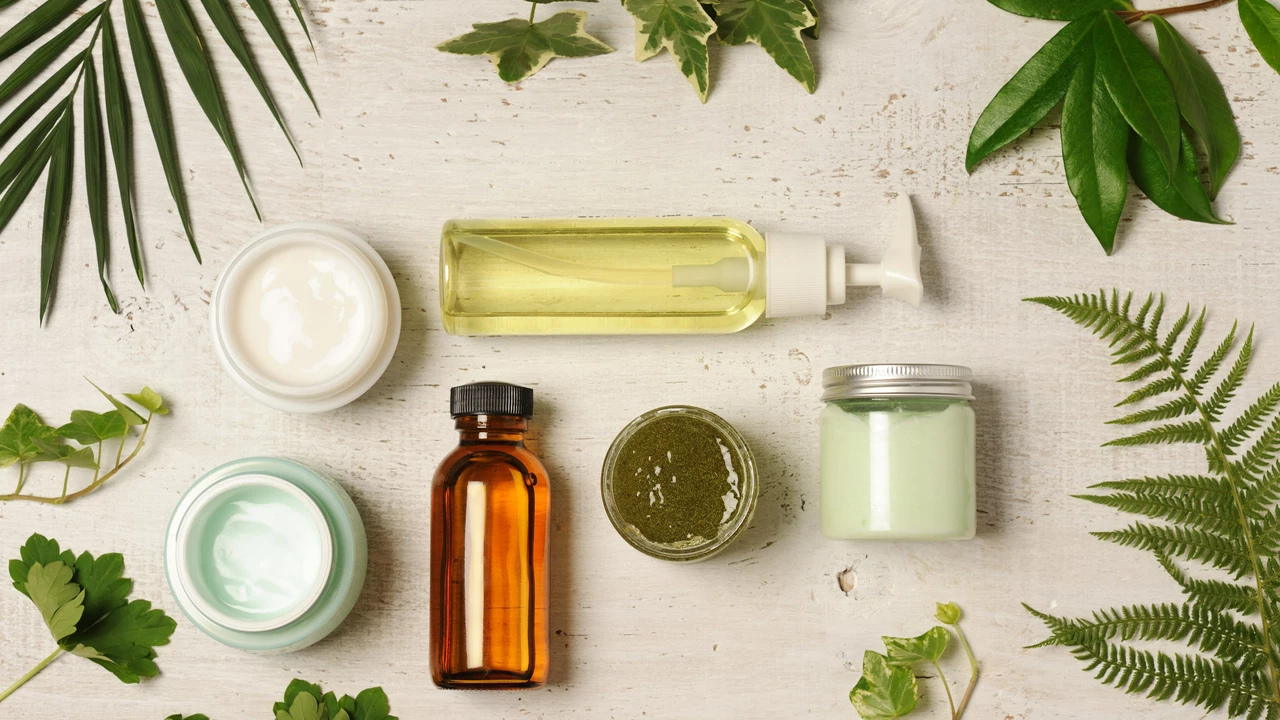
Understanding Allantoin: An Introduction
Allantoin has been making waves in the skincare industry in recent years and for good reasons. As a naturally occurring compound, it's found in several plants including comfrey, chamomile, wheat sprouts, and sugar beet. Allantoin in skincare has been proven to have multiple benefits that help to improve the health and appearance of the skin.
As a skincare enthusiast, I've always been curious about the ingredients in my products. I've been digging deep into the world of natural skincare ingredients, and I've been amazed by what I've found out about allantoin. Join me as I delve deeper into this plant-derived wonder ingredient and how it can transform your skincare routine.
The Science Behind Allantoin
Allantoin is a compound that is derived from the uric acid of most mammals, excluding humans and primates. In plants, it's found in the roots, leaves, and seeds. It's fascinating how this compound, which is also produced synthetically in labs, has become a key ingredient in many skincare products.
What makes allantoin so remarkable is its keratolytic properties. This means it can help the skin to exfoliate and shed dead skin cells more effectively. It's also a potent moisturizing ingredient that promotes healthy skin cell regeneration, a must-have for anyone seeking to achieve glowing, youthful skin.
Allantoin and Skin Health
When it comes to skincare, allantoin is a powerhouse. It has the ability to soothe, hydrate, and repair the skin. It's particularly beneficial for those with sensitive or irritated skin, as it has calming properties that can help to reduce redness and inflammation.
Furthermore, allantoin stimulates the process of cell proliferation and wound healing. This makes it an excellent ingredient for those with acne-prone skin. It can also help to minimize the appearance of scars, as it promotes the growth of new, healthy tissue. If you've been struggling with skin issues, incorporating products with allantoin into your skincare routine can be a game-changer.
Using Allantoin in Your Skincare Routine
One of the best things about allantoin is its versatility. It's found in a wide range of skincare products, from cleansers and toners to moisturizers and serums. When shopping for skincare products, look for allantoin in the ingredient list to reap its benefits.
Using products with allantoin morning and night can help to maintain skin health. However, it's important to remember that everyone's skin is unique. What works for one person might not work for another. Always do a patch test first before introducing a new product into your skincare routine.
Allantoin's Safety Profile
As a blogger and skincare enthusiast, I always prioritize safety. The good news is that allantoin is generally considered safe for topical use. It's non-toxic, non-allergenic, and non-irritating, making it suitable for all skin types, including sensitive skin.
However, as with any skincare ingredient, it's always best to consult with a dermatologist or skincare professional if you have any concerns. They can provide personalized advice based on your skin type and needs.
Conclusion: The Power of Plant-Derived Ingredients
The world of natural skincare is truly fascinating, and allantoin is a shining example of the power of plant-derived ingredients. It's a reminder that nature often provides us with the most effective and gentle solutions for skin health.
As we continue to explore the wonders of natural skincare, it's clear that ingredients like allantoin are more than just a passing trend. They're a testament to the beauty of nature and its ability to nurture and heal our skin. I hope this article has inspired you to explore the wonders of allantoin and consider incorporating it into your skincare routine.
7 Comments
Chris Remo
July 28, 2023 AT 11:58 AM
i tried this stuff after reading this post and holy crap it worked. my acne scars are fading and my skin feels like it’s breathing. no more expensive nonsense. nature knows what’s up.
Michael Herr
July 28, 2023 AT 22:44 PM
Allantoin is one of those ingredients that doesn’t get enough attention. It’s simple, effective, and doesn’t need a fancy marketing campaign to prove it works. Just look at the science.
Crystal Magnant
July 29, 2023 AT 08:38 AM
I used to think all natural stuff was just hippie nonsense until I tried a comfrey cream with allantoin. My eczema went from flaring every week to barely existing. Now I’m the one pushing it on my friends. 🌿❤️
Danie Joy
July 30, 2023 AT 07:22 AM
allantoin is from uric acid?? wait… so its like… pee in my face cream?? i mean i guess its natural but what if they just mix it with glyphosate and call it organic?? they’re lying to us. always are. check the source. always.
Katherine Stapp
July 30, 2023 AT 21:20 PM
I don’t care if it’s from plants or pee-this is why America needs to stop importing all this ‘natural’ nonsense from Europe. We’ve got better ingredients here. Like aloe vera from Texas. Pure. Strong. American.
Frank De Silva
July 31, 2023 AT 13:22 PM
Interesting. But let’s be honest-this is just another case of marketing repackaging a low-cost synthetic derivative as ‘plant-derived wonder.’ The science is solid, yes, but the narrative? Pure performative wellness. I use it, but I don’t believe the hype.






Daniel Rogers
July 27, 2023 AT 15:56 PM
Allantoin is literally magic in a jar 🌱✨ I switched to a serum with it last winter and my dry, flaky skin went from 'cracked desert' to 'smooth baby butt'. No more redness, no more irritation-just glow. I'm obsessed.